Advising and Resources Center
Pre-Health Professions
Explore Careers in the Health Professions
The links provided below offer a broad range of information with which to explore careers in the health professions.
Pre-Medical
This page provides links to a wide variety of online resources for students considering or planning a career as a physician. The California State University, Fresno Premed website offers a comprehensive overview of medical school preparation.
Also available is information regarding diversity in the medical professions, admission requirements to medical school, the MCAT – (Medical College Admission Test), and the Medical School Application Service (MSAR) as well as links to summer academic enrichment programs, on-the-job training, and a one-unit elective research course. (A copy of the MCAT and the MSAR is available to read in the Science and Health Careers Information Center.)
Students should confirm prerequisites with the medical schools to which they are interested in applying. Some schools may require additional courses not included below. Check requirements in the MSAR (Medical School Admission Requirements) available in many book stores.
Check osteopathic medical school requirements if you are applying to D.O. schools. It is essential that you see a pre-medical advisor prior to planning your pre-med program! Medical schools will consider students with any major as long as the medical school’s prerequisite requirements are met.
Required by Most Schools
| Course Topic | CSU Fresno Course Numbers | Notes |
|---|---|---|
|
Biology 1 year with lab |
BIOL 1A and BIOL 1B+BL | |
|
Chemistry 2 years with lab (General & Organic) |
CHEM 1A, CHEM 1B, CHEM 128A, CHEM 128B, CHEM 129A and often CHEM 129B | |
|
English 1 year |
ENGL 10 and either ENGL 20 or ENGL 160W, or some combination of English Composition courses | Two English classes can be incorporated into the general education requirements. |
|
Math (variable with school) |
Calculus A one-year college-level math requirement can be met with one semester of calculus (e.g., MATH 75 or MATH 75A+ MATH 75B) Statistics Statistics course (MATH 102, MATH 101 or PSYCH 42) |
Requirements differ from school to school. Some schools stipulate no requirements, while many require one year of college-level math. Some will accept a computer science course. Check requirements of schools in which you are interested, and determine which course is best for you based on your major requirements. |
|
Physics 1 year with lab
|
PHYS 2A and PHYS 2B |
Courses required by some medical schools
| Course Topic | CSU Fresno Course Numbers | Notes |
|---|---|---|
| Biochemistry | CHEM 150 or CHEM 155A + 155B | Biochemistry is highly recommended by many medical schools and should be taken before entering medical school. |
| Statistics (variable with school) | MATH 102, MATH 101 or PSYCH 42 (see math requirements above) | Discuss which course is best for you based on your major. |
| Behavioral Sciences | PSYCH 10 or SOC 1 |
Courses which may help with the MCAT and are highly recommended
| Course Topic | CSU Fresno Course Numbers | Notes |
|---|---|---|
|
Anatomy & Physiology (1 year) |
BIOL 67A+ 67B | |
| Genetics | BIOL 102 | |
| Cell Biology | BIOL 103 | |
| Molecular Biology | BIOL 150 |
- Overview of a Career in Medicine - Includes career description, employment characteristics, salary, employment outlook, educational programs, and licensure and certification, and inquiries contact information.
- Becoming a physician: frequently asked questions - American Medical Association's FAQ's, including attritubes of a successful physician.
- Considering a Medical Career? Find out what doctors do and how to prepare for a career in medicine.
- AspiringDocs.org - Timeline for applications and admission, MCAT deadline and score schedule, and information and support for diversity in the field of medicine. Includes "Ask the Experts" and "Inspiring Stories".
- Medical School Admission Requirements (MSAR) - This book is an invaluable and essential source of information on medical school admission requirements, class profiles, and much more. When you apply to medical school you will want a copy.
- Essential information on the MCAT exam - Important part of how medical schools access your application.
- AMCAS (Medical School Application Service) – Most medical schools use this service for initial applications. College transcripts, grades, letters of recommendation, personal essay, etc., are entered here and submitted by AMCAS to the medical schools of your choice.
- Association of American Medical Colleges (AAMC) - The AAMC Fee Assistance Program (FAP) for MCAT® examinees and AMCAS® applicants, with eligibility guidelines and online application.
- Association of American Medical Colleges (AAMC) - AAMC publications, job center, medical schools, and medical education and research.
- Summer Medical and Dental Education Program and the Association of American Medical Colleges - Summer medical and dental education programs are free and include full tuition, housing, and meals; six-week summer academic enrichment programs that offer freshman and sophomore college students intensive and personalized medical and dental school preparation. Open to students from historically underrepresented groups.
- St. Agnes (Fresno) Scribe Program - For pre-medical students. Excellent training and experience that includes assisting emergency room physicians on their rounds. An application is required.
Pre-Dental
This page provides links to valuable online resources for students considering or planning a career in dentistry. To the left is pre-dental preparation information, and pre-dental prerequisites. To the right are links to the CSM Chemistry Department’s Pre-Dental page outlining academic preparation and application procedures to dental school.
Students should contact individual dental schools for specific prerequisite information.
It is essential that you see a pre-dental advisor prior to planning your pre-dental program!
Majoring in science is not a must, but completion of pre-dental science requirements is necessary.
Required by Most Dental Schools
| Course Topic | CSU Fresno Course Numbers | Notes |
|---|---|---|
|
Biology with Lab 1 year with lab |
BIOL 1B+1BL | |
|
Chemistry 2 years with labs (General & Organic Chemistry) |
CHEM 1A, CHEM 1B, CHEM 128A, CHEM 128B & CHEM 129A | |
| Biochemistry | CHEM 150 or CHEM 155A | |
|
Physics 1 year with lab |
PHYS 2A and 2B | |
|
English 1 year |
ENGL 5A & 5B or ENGL 10 plus ENGL 20 or ENGL 160W. | Other combinations are possible. |
| Psychology | PSYCH 10 |
Recommended Course
| Course Topic | CSU Fresno Course Numbers | Notes |
|---|---|---|
| Microbiology with Lab | BIOL 120+120L | |
| Comparative Vertebrate Morphology | BIOL 143 | |
| Comparative Animal Physiology with lab | BIOL 162+ 162L | |
| Advanced Human Physiology | BIOL 163 | |
|
Anatomy & Physiology (1 year) |
BIOL 67A+ 67B | |
Below are links to an overview of a career in dentistry, a four-year graduation roadmap, summer education programs, information on the Dental Admission Test (DAT), and a comprehensive list of U.S. dental schools.
- Overview of a Career in Dentistry- Career description, employment characteristics, salary, employment outlook, need for minority dentists, educational programs, licensure, certification, and registration, and inquiries contact information.
- American Dental Association (ADA)- A website for students interested in a career in dentistry – provides an overview of the entire preparation and application process, and more.
- Four-year Timeline -What do you need to do to prepare yourself for dental school? It's more than just taking and doing well in your courses. If you are not on a four-year graduation plan, adapt this timeline from the ADA website to your own roadmap for graduation.
- American Dental Educational Association (ADEA)- Educational resources including application services, policy and advocacy, professional development, and publications, and video.
- ADEA Official Guide to Dental Schools ($35)- The ADEA Guide to Dental Schools answers virtually every question about dentistry and the dental school admissions process. You will want to refer to this when you are getting ready to apply.
- Summer Medical and Dental Education Program and the Association of American Medical Colleges - Summer medical and dental education programs are free and include full tuition, housing, and meals; six-week summer academic enrichment programs that offer freshman and sophomore college students intensive and personalized medical and dental school preparation. Open to students from historically underrepresented groups.
- Information on the DAT Exam - Required dental admission exam. Includes sections of chemistry, biology, verbal, and perceptual ability.
- American Student Dental Association -List of dental schools, member resources, and online purchase of ASDA Predental Handbook.
Pre-Dental FAQ
Click on the question to view the answer; click again to close the panel.
- A minimum of 90 semester units (three years) of university preparation. However over 90% of the admitted students have completed at least a bachelors degree. You should consider applying after 90 units only if your science and overall GPAs are well over 3.5.
- You must be either a citizen or a permanent resident of the US.
- Take the Dental Aptitude Test (DAT).
Most pre-dental students major in either biology or chemistry. However, you may take any major that you want as long as you take the minimum required coursework in biology and chemistry. This will take careful planning on your part. Consult with an advisor.
You go through the Associated American Dental Schools Application Service (AADSAS).
Go to this website for DAT information and instructions.
Many students take the Kaplan course to prepare for the DAT.
There are links listed on this website.
Yes. Check with your advisor to get on the club email list. The club brings in local dentists to describe the educational process, getting started in a practice, and to answer your questions. The club also organizes trips to California dental schools so that you can check out potential schools in person.
Your best guide is the ADEA Official Guide to Dental Schools, published annually by the ADEA. Request your copy at this link.
A copy is also available in the Fresno State Library, at the first-floor reference desk. It lists all US and Canadian dental schools. The Guide has an extensive discussion about finances and a detailed look at the most recent entering class (DAT scores, GPA, applicant pool), application process, and each school’s costs.
One year before you expect to enter dental school. You should take the DAT and start the AADSAS process the spring semester or early summer one year before you graduate. Check the ADSAS deadlines and instructions so that you do not miss important dates.
Many students apply again the next year and are successful. There are also alternative career paths which include podiatry, optometry, and clinical laboratory science, among others. You should keep these alternatives in mind early in your career and learn about the admission requirements for the above alternative programs. You may be able to take coursework that will prepare you for admission to more than one program. Dental and medical schools accept only about 25% of their applicants so you need to be realistic, especially if your GPA drops below 3.0.
Pre-Pharmacy
The links below include an overview of various careers in pharmacy, pharmacy school admission, information on the Pharmacy College Admission Test (PCAT), a comprehensive list of pharmacy schools, and access to the PSAR (Pharmacy School Admission Requirements) - reference guide to pharmacy school admission requirements. (A copy of the PSAR is available to read in the Advising and Resources Center)
Students should contact individual pharmacy schools for specific prerequisite information.
Common minimum science and matematics course
| Course Topic | CSU Fresno Course Numbers | Notes |
|---|---|---|
|
Biology 1 year with lab |
BIOL 1A, BIOL 1B+1BL | |
|
Chemistry 2 years with labs (General & Organic Chemistry) |
CHEM 1A, CHEM 1B, CHEM 128A, CHEM 128B, CHEM 129A & CHEM 129B | |
|
Anatomy & Physiology 1 year with labs |
BIOL 67A+67B |
Additional Course Recommendations Depending on School
Minimum admission requirements vary by institution
| Course Topic | CSU Fresno Course Numbers | Notes |
|---|---|---|
| Mathematics |
Calculus MATH 75 or MATH 75A+B Statistics*
|
Some cases MATH 76 *Connect with a CSM advisor for Assistance choosing an appropriate statistics course |
| Biochemistry | CHEM 150 or CHEM 155A | |
|
Microbiology with lab |
BIOL 120+120L | |
|
Molecular/Cellular Biology |
BIOL 103 | |
|
Physics (1 year with lab) |
PHYS 2A+ 2B | |
|
English (1 year) |
ENGL 5A & 5B or ENGL 10 plus ENGL 20 or ENGL 160W. | |
|
Oral Communication |
Comm 3 | |
|
Psychology |
PSYCH 10 | |
|
Economics |
ECON 40 or 50 | |
|
At least 1 other Social Science course |
SOC 1, ANTH 2, etc. | Connect with faculty advisor for other options |
- Overview of a Career in Pharmacy - Career description, employment characteristics, salary, employment outlook, educational programs, licensure, certification, and registration, and inquiries contact information.
- Pharmacy Career Information - Pharmacists work in a variety of occupational settings – not only in community pharmacies. Get information on the full range of possible pharmacy careers.
- American Association of Colleges of Pharmacy - Frequently asked questions about pharmacy and admission to pharmacy schools.
- List of pharmacy schools and links to school admission statistics - Includes contact information, admission statistics, course prerequisites, etc.
- PharmCAS: Pharmacy School Application service - One-stop-shop for applying to pharmacy schools.
- Pharmacy School Admission Requirements-Provides an overview of individual pharmacy schools. Mission statements, information on curriculum, statistics, admission requirements, gpa data, etc.
- PCAT Test - The PCAT test is not required if you apply in-state, but is for many or most out of state schools.
- PSAR - This reference guide provides prospective pharmacy students and school counselors with specifics about admission requirements for all the professional pharmacy degree programs.
Pre-Optometry
This page provides links to helpful online resources for students considering or planning a career as an optometrist.
Join the Fresno State Pre-Optometry Club!
Email: fresnostatepreoptometry@gmail.com
"We are committed to bring together students who are interested in pursuing a career in optometry. We wish to promote the field of optometry and prepare students through informational meetings, professional visitations, test preparation, community service, and general advising."
Each optometry school has slightly different admission requirements and requirements can change. For courses in English and Psychology, there may be other courses that can substitute for the ones listed. Please check with the schools (see websites below) to get up-to-date information.
Also, if you are considering or planning a career in optometry, it is important to see a pre-optometry advisor as early as possible in your college career.
| Topic | CSU Fresno Course Number | Note |
|---|---|---|
|
Biology with labs (1 year) |
BIOL 1A, BIOL 1B+1BL | |
|
Chemistry 2 years with labs (General & Organic Chemistry) |
CHEM 1A, CHEM 1B, CHEM 128A, CHEM 128B, CHEM 129A* | *Minimum 1 semester; might need CHEM 129B |
| Biochemistry | CHEM 150 or CHEM 155A | Doe |
|
Physics with labs (1 year) |
PHYS 2A+ 2B | |
|
Anatomy & Physiology with labs (1 Year) |
BIOL 67A+67B | |
| Microbiology with lab | BIOL 120+120L | |
| Mathematics |
Calculus MATH 75 or MATH 75A+75B Statistics*
|
*Connect with a CSM advisor for Assistance choosing an appropriate statistics course |
|
English (1 year) |
ENGL 5A & 5B or ENGL 10 plus ENGL 20 or ENGL 160W. | |
| Psychology | PSYCH 10 |
- Overview of a Career in Optometry - Career description, employment characteristics, salary, employment outlook, educational programs, licensure, certification, and registration, and inquiries contact information.
- Association of Schools and Colleges of Optometry - Information of the application process, career information, admission requirements, OAT (Optometry Admission Test), etc.
- OptomCAS Optometry School Application Service- OptomCAS is the Optometry Centralized Application Service. Through this service applicants may file one application and send it to multiple optometry programs. The schools and colleges of optometry will be able to process applications more efficiently.
Pre-Clinical Lab Sciences
Clinical Laboratory Scientists (CLS) work in hospitals, clinics, private laboratories, public health settings, and with pharmaceutical companies. Using laboratory equipment such as microscopes, and cell counters, clinical lab scientists perform testing on cells and fluids. They identify bacteria, viruses, toxic agents, and cancerous tumors in order to diagnosis and treat disease. The prerequisites link to the left includes course requirements, training programs, job listings, and a brief overview of the field.
Students should contact individual Clinical Lab Science schools for specific prerequisite information.
California Code of Regulations for Clinical Laboratory Personnel
Requirements for a CLS Trainee License
| Topic | CSU Fresno Course Number | Note |
|---|---|---|
|
Biology with lab (1 year) |
BIOL 1A, BIOL 1B+1BL | |
|
Chemistry 2 Years with lab (General & Organic Chemistry) |
CHEM 1A, CHEM 1B, CHEM 128A, CHEM 128B & CHEM 129A | |
| Biochemistry | CHEM 150 or CHEM 155A | |
| Quantitative Analysis Lab | CHEM 105 | |
|
Physics with lab (1 year) |
PHYS 2A+2B | |
| Medical Microbiology | BIOL 121 | *Prerequiste of BIOL 121 is BIOL 120+120L. Course is typically offered during Fall semester. |
| Immunology | BIOL 157 | *Prerequiste of BIOL 157 is BIOL 103. Course is typically offered during Fall semester. |
| Hematology | BIOL 164 | *Prerequiste of BIOL 164 is BIOL 103. Course is typically offered during Spring semester. |
Additional Course Recommendation
| Topic | CSU Fresno Course Number | Note |
|---|---|---|
|
Genetics |
BIOL 102 | |
| Cellular Biology | BIOL 103 | |
| Virology | BIOL 119 | Course is typically offered during Fall semester. |
| Microbial Physiology | BIOL 160 | Course is typically offered during Fall semester. |
The links below provide a comprehensive overview of clinical lab schools and careers.
- Overview of a Career in Clinical Laboratory Science - Career description, employment characteristics, salary, educational programs, and inquiries contact information.
- National Accrediting Agency for Clinical Laboratory Science (NAACLS) - Search for programs nationwide in the clinical lab sciences.
- U.S. Bureau of Labor Statistics, Occupational Outlook Handbook - Nature of work, training, employment, job outlook and projections, earnings and wages, and additional resources.
Pre-Podiatry
A podiatrist is a doctor of podiatric medicine (DPM); a podiatrist is trained to diagnose and treat conditions affecting the foot, ankle and related structures of the leg. Podiatrists have medical education and training comparable to physicians, including and typically two or three years of residency training. Podiatrists can practice surgery, sports medicine, geriatrics, pediatrics, orthopedics or primary care.
The links below offer an overview of a career in podiatric medicine, the APMA, podiatric schools and admission requirements, and an electronic admission application service at e-AACPMAS.
- Overview of a Career in Podiatry - Career description, employment characteristics, salary, employment outlook, educational programs, licensure and certification, and inquiries contact information.
- American Podiatric Medical Association - Qualifications, board certification, careers in podiatry, and kinds of conditions and diseases treated by podiatrists.
- Podiatry Schools and Links to Individual Schools - Selected list of U.S. podiatry schools with links.
- AACPM Application Service (e-AACPMAS) for Podiatry - Link to current application provided by the American Association of Colleges of Podiatric Medicine Application Service.
Pre-Veterinary
Veterinarians are doctors to small, large, and exotic animals including farm and wild animals. However most veterinarians, about 80%, work with pets; a smaller percentage work as researchers, livestock inspectors, or in food security. In addition to working in private or group practices, veterinarians are also employed by universities, medical schools, private industry, and government agencies (Occupational Outlook Handbook, 2010-11).
Students should contact individual Veterinary schools for specific prerequisite information.
| Topic | CSU Fresno Course Number | Note |
|---|---|---|
|
Biology with lab (1 year) |
BIOL 1A, BIOL 1B+1BL | Doe |
|
Chemistry 2 Years with lab (General & Organic Chemistry) |
CHEM 1A, CHEM 1B, CHEM 128A, CHEM 128B, CHEM 129A | |
| Biochemistry | CHEM 150 or CHEM 155A | |
|
Physics with lab (1 year) |
PHYS 2A +2B |
|
|
Mathematics |
Statistics* |
*Connect with a CSM advisor for Assistance choosing an appropriate statistics course |
|
Genetics & Genetics/Cell Biology Lab |
BIOL 102 & BIOL 104 or ASCI 125 |
|
|
Animal Physiology |
BIOL 162+162L, or BIOL 163 or ASCI 145 |
|
Additional Course Requirements Depending on School
| Topic | CSU Fresno Course Number | Note |
|---|---|---|
|
English (1 year) |
ENGL 5A & 5B or ENGL 10 plus ENGL 20 or ENGL 160W. | or other appropriate combinations |
| 8 semester units of Humanities/Social Science | ||
| Infectious Diseases of Animals | ASCI 165 | |
| Animal Nutrition | ASCI 135 + 1 production course (ASCI 121, 131, 141, 151, 161, or 171) |
The links below provide an overview of veterinarian careers, the AVMA, and veterinary medicine colleges.
- Overview of a Career in Veterinary Medicine- Career description, employment characteristics, salary, employment outlook, educational programs, licensure, and inquiries contact information.
- American Veterinary Medical Association - Links to AVMA resources, current scientific issues, journals and references, veterinary resources, jobs, AVMA Annual Convention and services, and resources for the public.
- Association of American Veterinary Medicine Colleges - Click on "Students and Admissions" for a list of U.S. and international veterinary medical schools. Veterinary colleges accrediated by the AMVA.
- American Veterinary Medical Association Application Service (VMCAS) - Application resources, and contact information including a student and advisor hot
Physician Assistant
Physician Assistants (PA's) work under the supervision of a medical doctor or a doctor of osteopathy. PA's are required to complete both academic coursework and clinical training. A PA's primary role is to deliver diagnostic, therapeutic, and preventative medical services and may also include that of researcher, educator, or administrator. Graduates of a PA program must pass the Physician Assistant National Certifying Examination (PANCE) to receive state licensure.
The links below provide helpful information on locating Physician Assistant schools, educational clinical requirements, certification, employment and salary, an application service, and state licensure requirements.
Students should contact individual Physician Assistant schools for specific prerequisite information.
| Topic | CSU Fresno Course Number | Note |
|---|---|---|
|
Biology with lab (1 Year) |
BIOL 1A, BIOL 1B+1BL | |
|
Chemistry with lab (General Chemistry, 1 year) |
CHEM 1A & CHEM 1B | |
|
Anatomy & Physiology with lab (1 year) |
BIOL 67A+ 67B | |
|
Microbiology |
BIOL 120+120L (recommended) | *BIOL 20 may not be accepted- check whether institution allows for "introductiory/elementary" courses |
|
Genetics |
BIOL 102 | |
|
Mathematics |
Algebra MATH 3, 3L Calculus or MATH 75 or MATH 75A+ 75B Statistics* |
*Connect with a CSM advisor for Assistance choosing an appropriate statistics course |
|
English |
ENGL 10 | Some may require a year; Connect with a CSM advisor for recommendations |
|
2 courses in Social Sciences |
Psychology, Sociology, Women's Studeis, Anthropology |
- Physicians Assistant Requirements - The information included on this website is comprised of licensing guides,details on pursing a specialty area of practice, earning a certificate of added qualification (CAQ), preparing for the PANCE exam and salary data that will help individuals get in to and advance in their career.
- PAEA Program Directory - The directory has a map view or a list view, allowing applicants to view the geographical
span of PA programs across the country and advanced filtering options such as GRE
requirement, veteran support, minimum GPA, etc. Also, added fields for each program
such as:
- Supplemental Fee Waiver
- Program Matriculants by Gender
- Program Matriculants by Ethnicity
- Required Onsite Interview
- Virtual Experience Hours Accepted
- California Academy of Physician Assistants (CAPA)
- Central Application Service for Physician Assistants (CASPA) - Participating programs, FAQ's, and PA Programs Directory.
- U.S. Bureau of Labor Statistics, Occupational Outlook Handbook - Nature of work, training, employment, job outlook, projections, wages and earnings, and additional resources.
- American Academy of Physician Assistants - About physician assistants, physician assistant programs, education and certification, state and federal advocacy and practice resources, and physician assistant news.
Pre-Clinical Psychology
{Coming Soon}
Pre-Clinical Neuropsychology
According to the APA, the field of Neuropsychology is:
"The branch of science that studies the physiological processes of the nervous system
and relates them to behavior and cognition, in terms both of their normal function
and of the dysfunctional processes associated with brain damage."
According to the National Academy of Neuropsychology:
"A clinical neuropsychologist is a professional within the field of psychology with
special expertise in the applied science of brain-behavior relationships. Clinical
neuropsychologists use this knowledge in the assessment, diagnosis, treatment, and/or
rehabilitation of patients across the lifespan with neurological, medical, neurodevelopmental
and psychiatric conditions, as well as other cognitive and learning disorders.
The clinical neuropsychologist uses psychological, neurological, cognitive, behavioral,
and physiological principles, techniques and tests to evaluate patients’ neurocognitive,
behavioral, and emotional strengths and weaknesses and their relationship to normal
and abnormal central nervous system functioning.
The clinical neuropsychologist uses this information and information provided by other
medical/healthcare providers to identify and diagnose neurobehavioral disorders, and
plan and implement intervention strategies."
Pre-Health Program Advisors
Pre-Medical/Osteopathic, Pre-Physician Assistant, and Pre-Clinical Lab Science
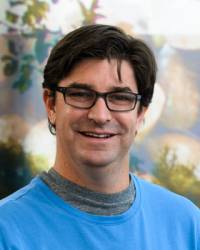
Dr. Larry Riley
Schedule an Appointment
Walk-in: Wednesday's 1-2pm, Science 1 Room 104
Email: lriley@csufresno.edu
559.278.2997
Science I, Room 316B
Pre-Dental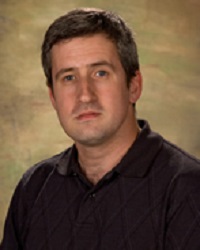
Dr. Laurent Dejean
Department of Chemistry and Biochemistry
Email: ldejean@csufresno.edu
559.278.2008
Science I, Room 356
Pre-Pharmacy
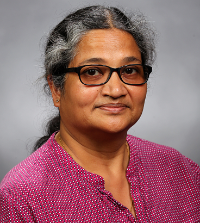
Dr. Kalyani Maitra
Department of Chemistry and Biochemistry
Email: kmaitra@csufresno.edu
559.278.5191
Science I, Room 360
Pre-Optometry
Dr. Daqing Zhang
Department of Physics
Email: dzhang@csufresno.edu
559.278.7096
McLane Hall, Room 260
Pre-Veterinary
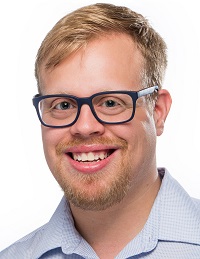
Dr. Joel Slade
Department of Biology
Email: joelslade@csufresno.edu
559.278.5242
Science I, Room 206A
Pre-Clinical Neuropsychology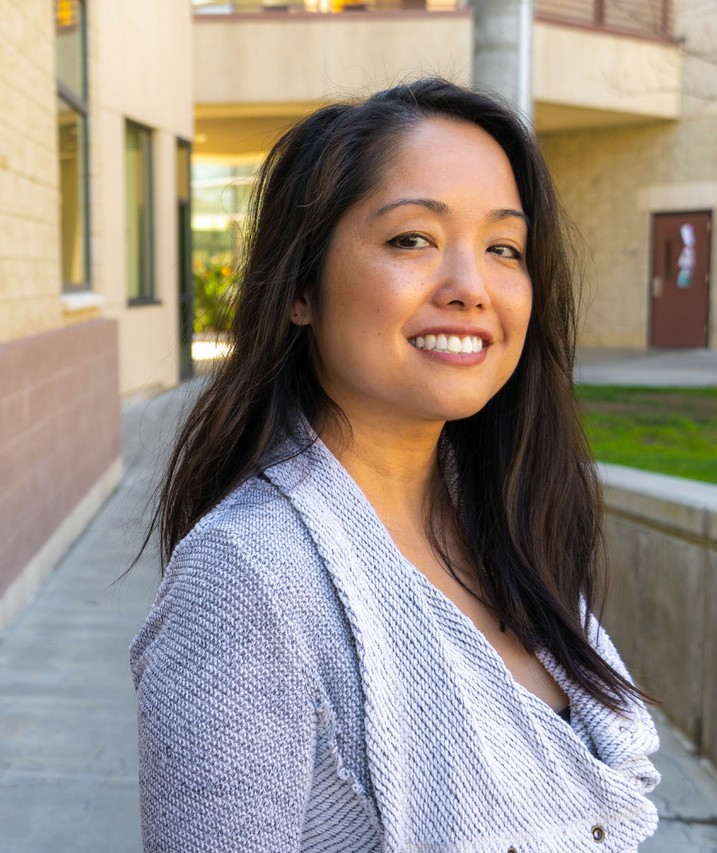
Dr. Ellen Woo
Department of Psychology
Email: ewoo@csufresno.edu
559.278.5124
Science II, Room 352
Pre-Clinical Psychology
Dr. Christine Edmondson
Department of Psychology
Email: cedmond@csufresno.edu
559.278.6944
Science II, Room 331
Pre-Clinical Neuropsychology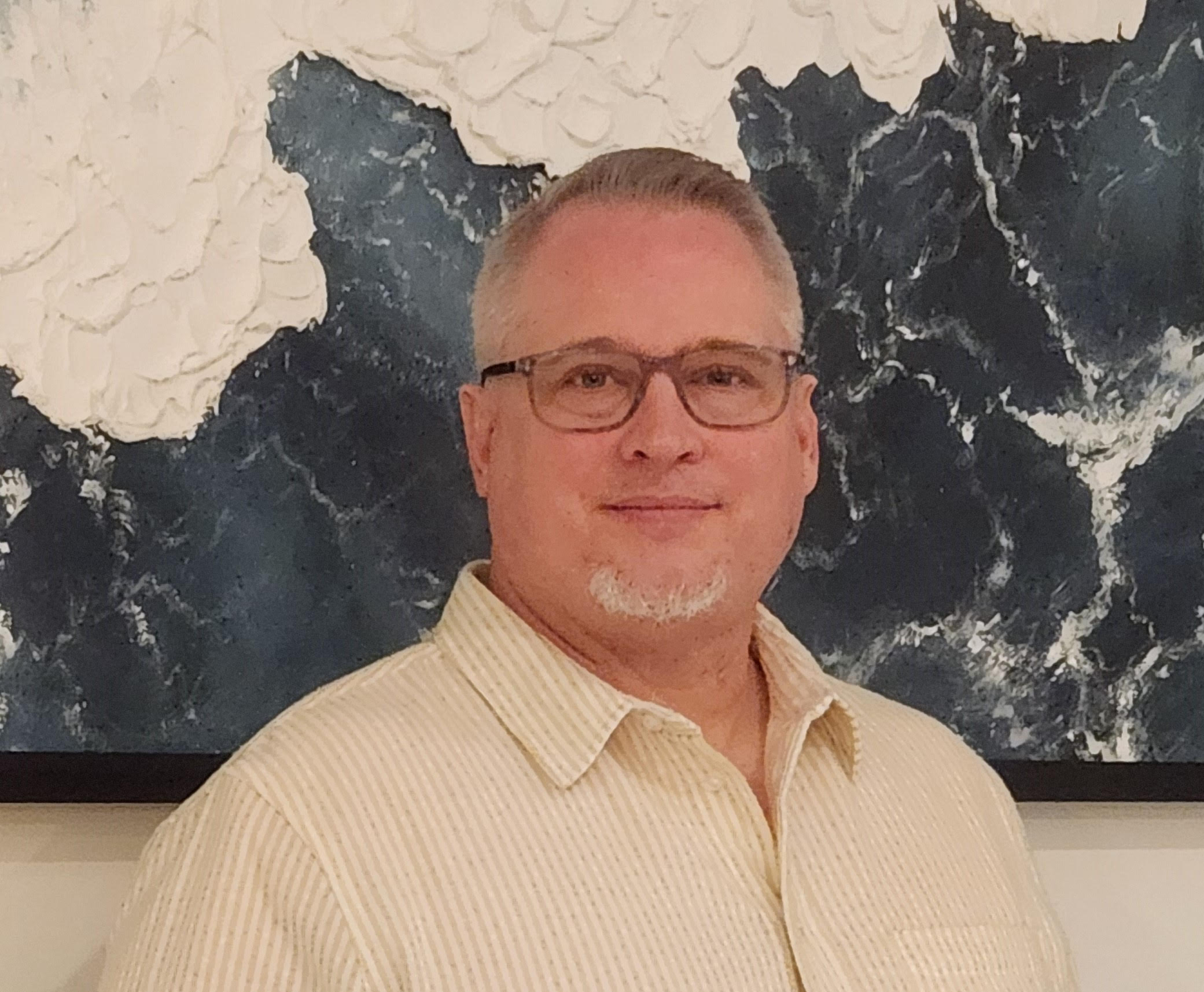
Dr. Matthew Wright
Department of Psychology
Email: mattwright@csufresno.edu
559.278.3852
Science II, 357
For other resources in our college, please visit the Center for Access to Science for All (CASA). This center offers a welcoming environment and a range of resources for students
interested in science, technology, engineering, and mathematics (STEM), as well as
those pursuing targeted health professions. The center is home to several programs,
including the Health Careers Opportunity Program (HCOP), Health Professions Pathways
Program (HPPP), CSU STEM Pathways Alliance (SPA), and more. These programs offer support
to students through career readiness initiatives, research opportunities, and professional
development opportunities
